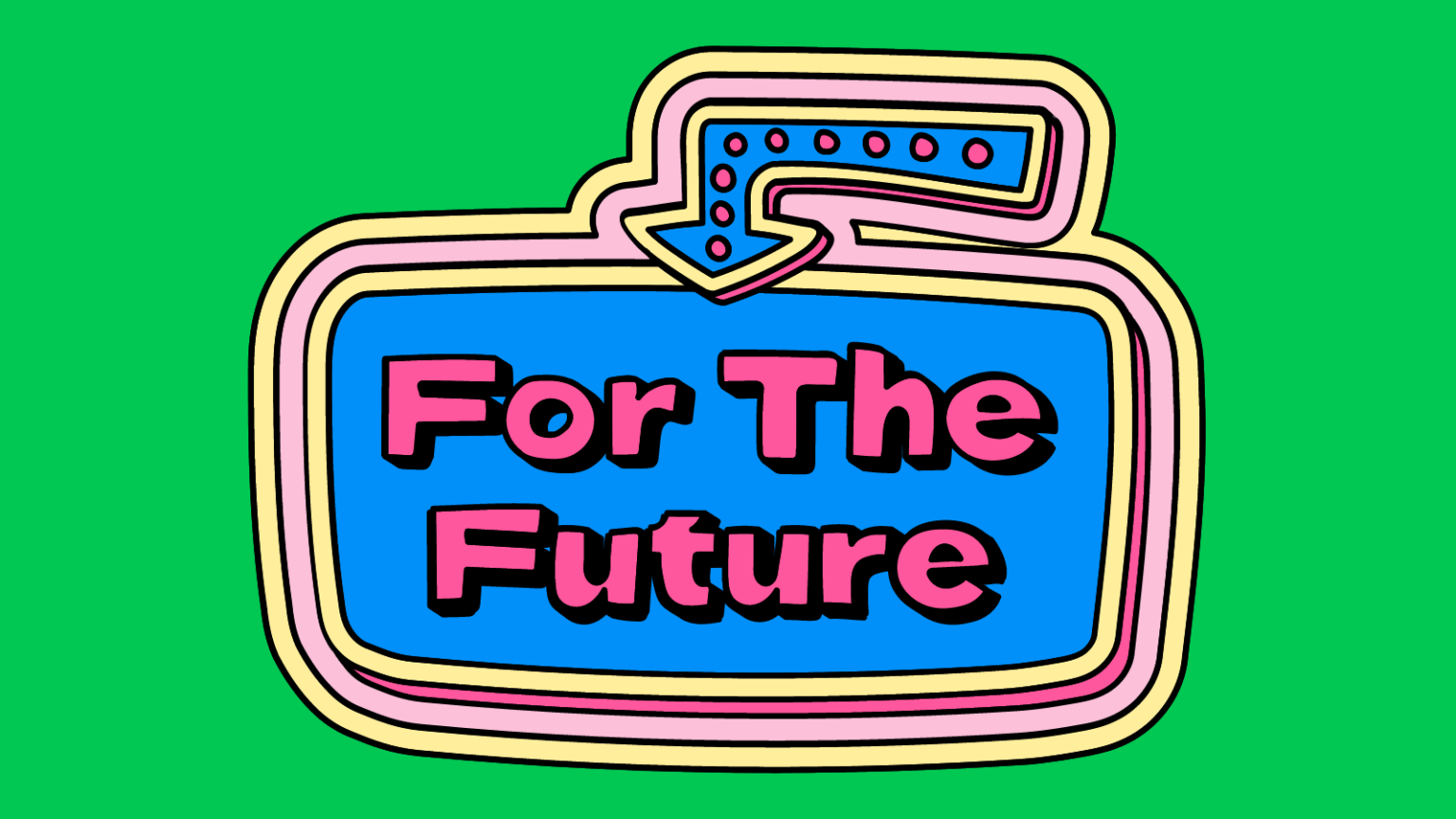Teach Future Simple and The 5 Ps
The present simple is, on the whole, pretty simple. The rules for when to use it and when not to use it are fairly clear-cut and teachable. The past simple is even simpler. But the future simple … it’s a bit of a nightmare.
The future not-so-simple
For a start, there are all those wishy-washy so-called rules about when to use ‘will’ and when to use ‘going to’, when in fact both options are usually possible. Then, to make matters worse, there are seemingly arbitrary rules about where you can’t use ‘will’ (such as after ‘if’) … not to mention a host of apparent exceptions to those rules. Finally, there are even situations where ‘will’ doesn’t even refer to the future at all. It’s all a big mess … or so it seems.
It’s silly to call ‘will’ a tense
On the other hand, at least the form of ‘will’ is simple. It’s just a single word, which works in exactly the same way as modal auxiliary verbs like ‘can’, ‘might’ and ‘should’. (Think about the way we make questions and negatives, for example, or the lack of a third-person ‘s’). In fact, the form is so simple that it’s hard to justify labelling it a tense at all.
If you want to call ‘will’ a tense, why not call ‘can’, ‘might’ and ‘should’ tenses too? Or, for that matter, ‘tomorrow’, which is at least as good a marker of futurity as ‘will’. Clearly, that would be a bit silly, but I’d argue that it’s just as silly to call ‘will’ a tense. You’ll have noticed that I abandoned the label ‘future simple’ after my first paragraph, and have referred to it as ‘will’ ever since.
‘Will’ and the future are far from straightforward
So much for form, but what about meaning? Surely part of the meaning of ‘will’ is ‘the future’, right? Doesn’t that justify labelling it a tense? Well, not necessarily. As I mentioned above, the relationship between ‘will’ and ‘the future’ is far from straightforward. There are plenty of ways of referring to the future without using ‘will’, and plenty of ways of using ‘will’ without referring to the future. We need to dig a bit deeper to find the real meaning (or meanings) of ‘will’.
Predicting the past, present and future
One of the main uses of ‘will’ is to make predictions, and, inevitably, predictions tend to be about the future. For example, if I say ‘I think it’ll probably rain on Saturday’, I’m clearly talking about next Saturday, not last Saturday. If you’ve been teaching for a few years, you’ll be familiar with the old distinction between subjective predictions with ‘will’ (e.g. “I think it’ll rain, but that’s my opinion”) and objective predictions with ‘going to’ (e.g. “I think it’s going to rain, based on some objective evidence”).
We make predictions about the present, too
But we also occasionally make predictions about the present, when we don’t know certain facts. For example, if I say “Don’t phone Anna now – she’ll be at work at the moment”, I’m making a guess about something I’m not sure of – in other words, a prediction about the present. I squeezed another example into the previous paragraph (“… you’ll be familiar …”). This use of ‘will’ for present predictions isn’t especially common – we’re more likely to use a word like ‘probably’ – but the fact that it’s possible shows that predictions don’t always have to be about the future.
What about predictions about the past?
Well, I actually used one in my third paragraph (“You’ll have noticed …”). Here, I was using the future perfect to make a guess about your past. This is actually a fairly common use of the future perfect, much more useful than the ‘this-time-next-year-we’ll-have-been-married-ten-years’ use, but I’m guessing that you won’t have seen this use in many coursebooks. (And yes, I’m sure you’ll have spotted the example I squeezed into the previous sentence too).
Four flavours of willingness
A second important use of ‘will’ is to make plans: “Oh no, it’s raining, so maybe I’ll go to work by bus today.” Again, you’ll be familiar with the distinction between ‘will’ for making spontaneous plans/decisions, and ‘going to’ for talking about plans made earlier. This distinction is similar to the one for predictions: in both cases, we use ‘will’ for the version that’s more subjective, based on our own thought processes; the version with ‘going to’ is more objective, based on concrete facts outside our own brains.
Making offers
Related to this use of ‘will’ for plans is the way we use ‘will’ to make offers/proposals (e.g. “I’ll take you in my car if you like”) and promises (e.g. “Don’t worry, I promise I won’t drive too fast”). In fact, it’s often difficult to distinguish between the three uses: many offers are also promises or spontaneous decisions, for example. I prefer to think of them as three flavours of a single use. But with all three flavours, the link with future time is very strong: we simply don’t make spontaneous decisions about the past, for example.
But if we take a step back from this close-up view of plans, proposals and promises, we’ll see that what they all have in common is that they’re statements of willingness: what we are willing / happy / prepared to do. (And of course, it’s no coincidence that the adjective ‘willing’ contains the word ‘will’ – they both originate from the old days when ‘will’ simply meant ‘want’, as it still does in German). Plans, proposals and promises are all special cases of expressing willingness.
A fourth flavour of willingness
With this more abstract view, we can identify a fourth flavour of willingness: attitudes and personal preferences. For example, we can describe what a person is happy to do as a habit (e.g. “My son will happily sit for hours playing with his toy cars”) or refuses to do (e.g. “My students won’t do any writing – it drives me crazy”). We can also use it talk about certain objects as if they have an attitude problem: “I can’t get in – the door won’t open”.
As these examples show, this flavour of willingness works perfectly well with a meaning of ‘present time’. And when we need to talk about past preferences, we can simply use ‘would’ as the past tense of ‘will’: “When he was small, my son would spend hours playing cars”; “My students wouldn’t do any writing … until I threatened to contact their parents”; “I couldn’t get in because the door wouldn’t open.”
When ‘will’ won’t do
Now that we’ve got a set of reasons for using ‘will’, we can start to make sense of why it’s wrong to use ‘will’ in certain situations. Let’s call these reasons ‘the Five Ps’ (Predictions, Plans, Proposals, Promises and Preferences). They cover a lot of future meanings between them, but not everything. For example, there are some future facts, like “Tomorrow is Wednesday” or “The train leaves at five” which don’t fit any of the reasons for using ‘will’. In such cases, the present simple drops in as the default future verb form.
A similar thing happens with those dreaded if-clauses, as in “If it rains tomorrow, I’ll go to work by bus.” In this example, I’m not predicting that it’ll rain – in fact, I’m leaving both options (rain and no-rain) wide open. I’m also not talking about a decision to rain, a promise to rain, or an offer to rain. And I’m certainly not talking about the rain’s bad attitude. In other words, there’s simply no reason to use ‘will’ in the if-clause. That’s why it sounds so odd to say ‘If it’ll rain …’.
The same goes for other conjunctions
The same goes for all those other conjunctions that seem to block ‘will’ in future-time clauses: unless, until, before, after, when, while, as long as, as soon as, in case, provided, and so on. In each case, none of the Five Ps apply to the clause in question, so there’s no reason to use ‘will’. We can see this most clearly in structures with ‘the … the …’ (e.g. “The more I learn, the less I understand”). Although the two parts of the sentence seem identical, a difference jumps out when we talk about the future (e.g. “The sooner you start, the sooner you’ll finish”). Here, the second clause is a prediction, so it makes sense to use ‘will’. There’s no reason for using ‘will’ in the first clause, so we don’t.
Where there’s a will, there’s a way
That just leaves a handful of apparent exceptions to the rules: situations when we can, in fact, use ‘will’ in future-time clauses with ‘if’, etc.
Let’s have a look at some examples where ‘will’ is OK in an if-clause:
- I’ll check your writing if it’ll help.
- If it’ll rain at the weekend, we should take an umbrella with us.
- I’ll tell you a secret if you won’t tell anyone.
- If you’ll buy me dinner, I’ll wash your car.
- If you’ll follow me, I’ll take you to your seat.
- If you won’t do any writing, you won’t pass the course.
Examples (1) and (2) both contain predictions in the if-clause. I’ll check your writing (now) if you predict (now) that it’ll help (later). We should take an umbrella (today) if you agree with my prediction (today) that it’ll rain (tomorrow).
Examples (3) and (4) both contain promises in the if-clause. I’ll tell you a secret (now) if you promise (now) that you won’t tell anyone (later). I’ll wash your car (today) if you promise (today) that you’ll buy me dinner (tomorrow).
Examples (5) and (6) both contain statements of willingness/attitude in the if-clause. The waiter is saying “If you are willing to follow me, I’ll take you to your seat.” The teacher is saying “If you refuse to do any writing, you won’t pass the course.”
Reinforcing rules
So we see that, far from being exceptions to the rule, sentences like these actually reinforce the rules about when we should and shouldn’t use ‘will’. The trick is simply to see that ‘will’ isn’t defined in terms of ‘the future’ but rather by the Five Ps: Predictions, Plans, Proposals, Promises and Preferences.
In my next article, I’ll extend this analysis to cover ‘would’, including those apparently bizarre rules about when you can and can’t use it in wishes. I’ll also come back to the issue of whether the rain might have an attitude problem after all.







